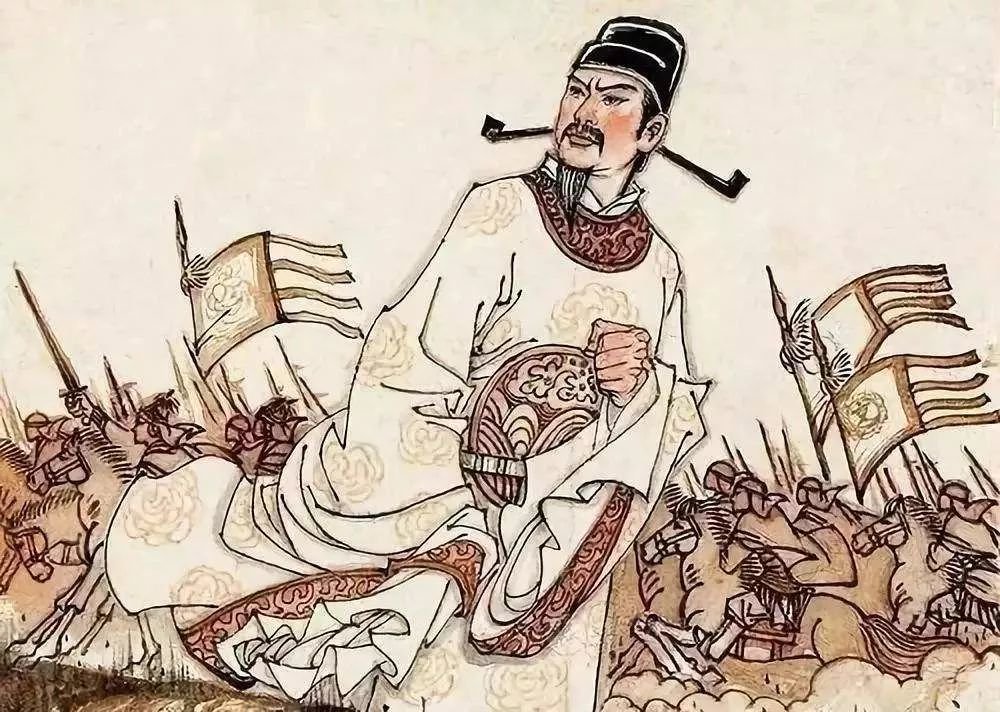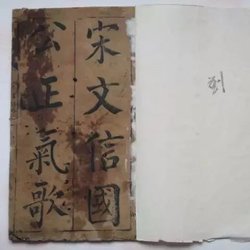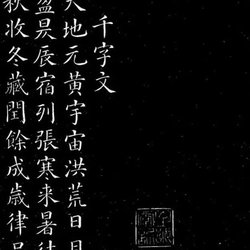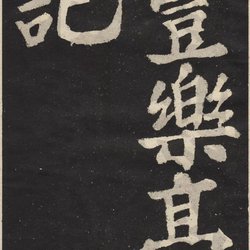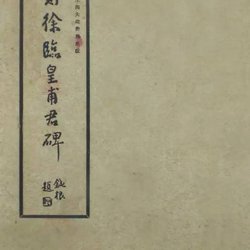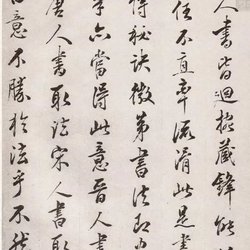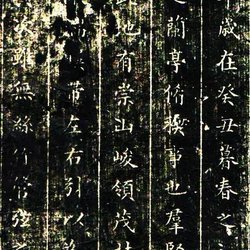"Song of Righteousness" is a five-character ancient poem written by the Southern Song Dynasty poet Wen Tianxiang in prison. It embodies his noble national integrity and unyielding personality strength. Lin Zexu wrote this "Song of Righteousness" to clarify his aspirations.
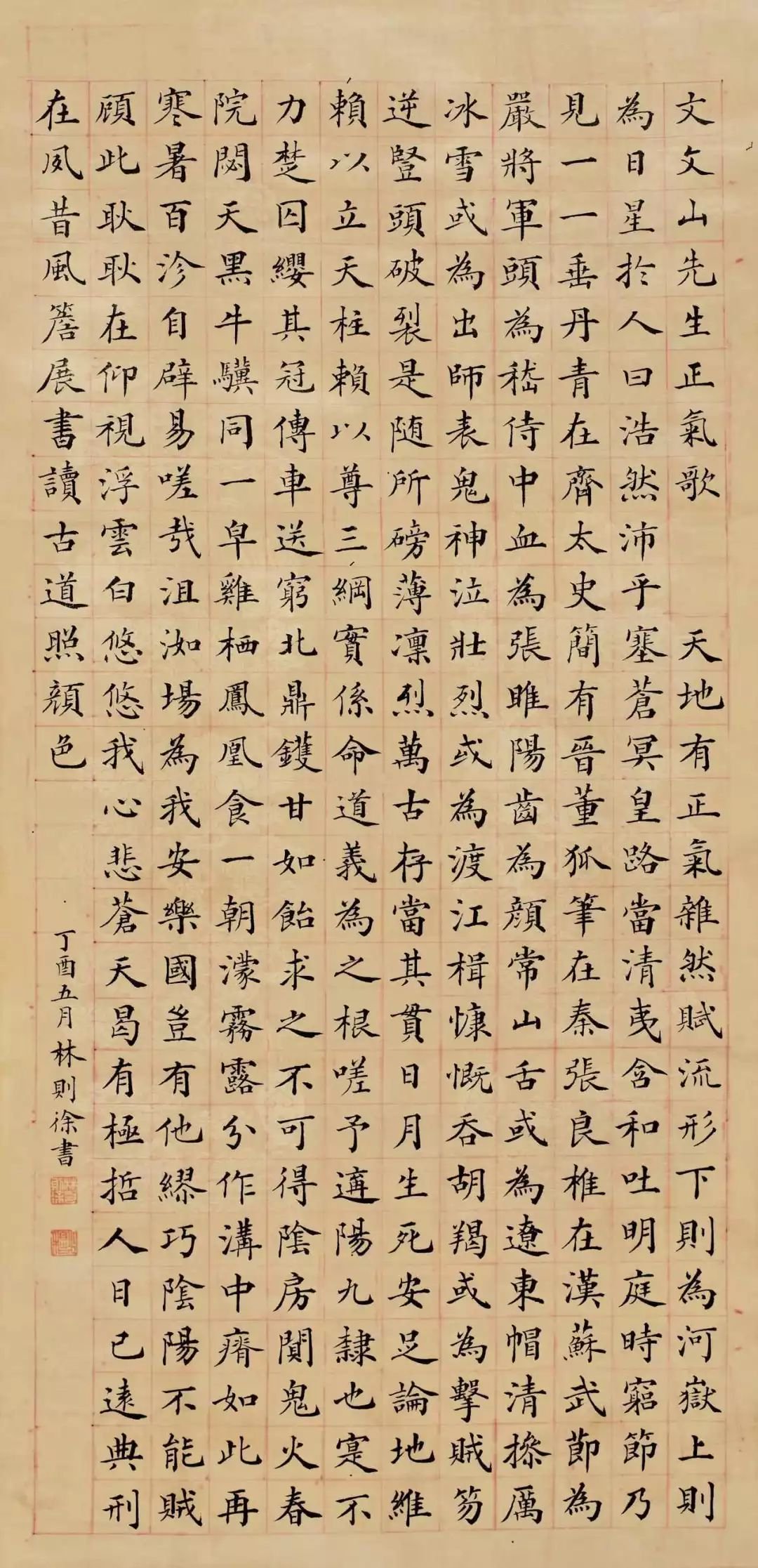
【1】Mr. Wen Wenshan's "Song of Righteousness"; Heaven and earth have righteousness, which is mixed and endowed with manifolds. Below are the rivers and mountains, and above are the sun and stars. To others, it is said that it is vast and overwhelming. The imperial road should be Qingyi, Hanhe Tumingting. When the time comes, we can see each other and draw pictures one by one. In Qi Taishi bamboo slips, in Jin Dynasty Dong Hu's pen. Zhang Liangzhui in Qin Dynasty and Su Wujie in Han Dynasty. He was the head of General Yan and was bleeding for Ji Shi. They are Zhang Suiyang's teeth and Yan Changshan's tongue. Or it is the Liaodong hat, clearing the ice and snow. Or to show off one's teachings, ghosts and gods weep heroically. Or to cross the river and swallow Hu Jie generously. Or for hitting the thief's wat, the head will be broken if it is turned upside down. This is the majestic Qi that will last forever. When it penetrates the sun and moon, life and death will be settled. The earth depends on it to stand, and the sky pillar depends on it. The three cardinal principles are actually life-related, and morality is the root. I'm sorry to hear that Yang Jiu is really weak. The prisoners of Chu wore their crowns and sent them to Qiongbei in chariots. The tripod wok is as sweet as glutinous rice, but you can't get it if you ask for it. There is a ghost fire in the underworld, and it is dark in the spring courtyard. The oxen and the oxen eat the same soap, and the chickens and phoenixes eat. Once there is fog and dew, it becomes barren in the ditch. In this way, no matter how cold or hot it is, everything will change by itself. Alas, Ju Lauchang, for my peaceful country. How could he not be clever? Yin and Yang cannot be thieved. Taking care of this, I look up at the white floating clouds. My heart is filled with sadness, and the sky is full of sorrow. The day of the philosopher is far away, and the punishment is in the past. The wind eaves display books for reading, and the ancient roads illuminate their colors. (Book by Lin Zexu in May of Dingyou)
Wen Tianxiang (June 6, 1236 - January 9, 1283), was originally named Yun Sun, also named Song Rui and Lu Shan. The Taoist name is Fuxiu Taoist and Wenshan. A native of Luling, Jizhou (now Futian Town, Qingyuan District, Ji'an City, Jiangxi Province), he was a politician, writer, patriotic poet, famous anti-Yuan minister, and national hero in the late Southern Song Dynasty. He was also known as the "Three Heroes of the Late Song Dynasty" together with Lu Xiufu and Zhang Shijie. .
In the fourth year of Baoyou's reign (1256), Wen Tianxiang ranked first in Jinshi and became the number one scholar. In the first year of Kaiqing's reign (1259), he was granted the additional title of Cheng Shilang and Signing Letter Ning Haijun, Judge of Jiedu. In the sixth year of Xianchun (1270), he served as military supervisor and Quanzhi Academy. He was dismissed from office because his words when drafting the imperial edict were ridiculing Jia Sidao, the prime minister. In the first year of Deyou (1275), the Yuan army marched eastward along the Yangtze River. Wen Tianxiang used his family wealth as military resources and recruited soldiers to serve as King Qin. He was appointed by the Song Dynasty as the envoy to the west of Zhejiang and Jiangdong and the governor of Pingjiang Prefecture. While rescuing Changzhou, he retreated to Yuhang due to internal discord. Later, he was promoted to the right prime minister and secret envoy, and negotiated peace with the Yuan army. He was detained for denounced the Yuan Prime Minister Boyan, and was escorted to the north to escape. Immediately, he, Zhang Shijie, Lu Xiufu and others supported King Yi Zhao as the emperor in Fuzhou. Because his plan was not adopted, he went to Nanjianzhou to gather troops to fight against the Yuan Dynasty. In the second year of Jingyan's reign (1277), he attacked Jiangxi again, but was defeated and retreated to Guangdong alone. In the first year of Xiangxing (1278), he was captured in Wupoling and then escorted to Dadu of the Yuan Dynasty.
Wen Tianxiang was imprisoned in Dadu for three years. After repeated threats and inducements, he refused to give in and died in December of the 19th year of Yuan Dynasty (January 1283). He died at the age of 47. His works were compiled by later generations into "The Complete Works of Mr. Wenshan". Many of his works contain loyal, angry and generous articles. His poetic style changed after Deyou, and became bold and bold, which is worthy of being called the history of poetry.
